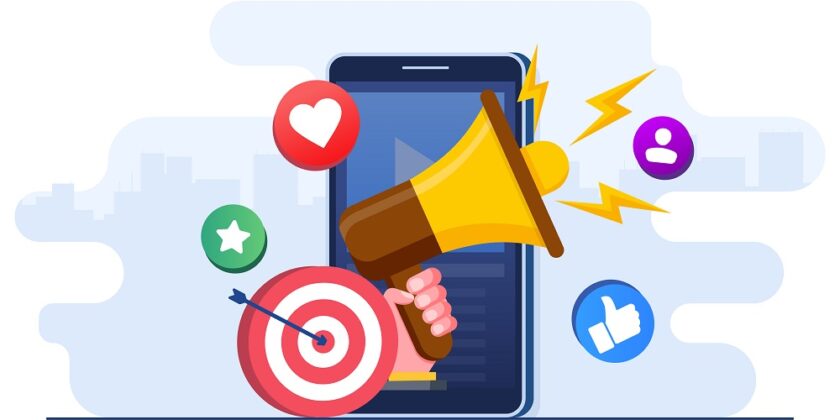Social media is increasingly being recognized as a valuable tool for promoting responsible gambling awareness. Platforms such as Instagram and Twitter are not limited to entertainment purposes; they also function as effective channels for disseminating educational content and sharing personal narratives related to safe gambling practices.
These platforms have the capacity to reach a wide audience, making them instrumental in spreading messages about responsible gambling.
However, the use of social media in this context is not without challenges. One of the primary concerns is ensuring the accuracy and reliability of the information being shared. Misinformation can undermine the objectives of responsible gambling campaigns and potentially lead to adverse outcomes.
Additionally, there is a need to carefully balance awareness efforts with the potential for unintended promotion of gambling activities.
In summary, social media platforms can play a significant role in shaping responsible gambling awareness by providing a broad reach for educational campaigns and personal stories.
Nonetheless, it is essential to address challenges related to information accuracy and the fine line between awareness and promotion to maximize their effectiveness in this domain.
Social Media’s Role in Awareness
Social media plays a substantial role in increasing awareness about responsible gambling. Platforms such as Facebook, Twitter, and Instagram are instrumental in distributing information to a wide audience. Users frequently encounter posts and campaigns that emphasize the importance of gambling responsibly. These platforms facilitate the sharing of these messages, thereby extending their reach and potential impact.
Additionally, social media provides access to educational content about the risks and benefits associated with gambling. This content can take various forms, such as infographics, videos, or articles, which offer guidance on responsible gambling practices. Engaging with these posts can enhance their visibility, allowing more individuals to access important information.
Moreover, social media offers the opportunity to join groups or follow pages focused on responsible gambling. These communities consist of individuals who exchange tips, support, and personal experiences. Such interactions can be beneficial in maintaining awareness and staying connected with developments in responsible gambling.
Platforms for Gambling Education
Platforms specifically designed for gambling education offer a structured learning experience that’s often more comprehensive than what’s available through social media. These platforms provide detailed resources, tailored courses, and interactive tools to help users understand the intricacies of responsible gambling. Unlike the broad approach of social media, these platforms emphasize in-depth education and personalized guidance.
Typically developed by industry experts, psychologists, and educators, these platforms address the complexities of gambling behaviors. They offer various modules on topics such as setting limits, recognizing problem gambling signs, and seeking help. Interactive elements like quizzes, simulations, and forums help engage users, making the learning experience both informative and participatory.
Furthermore, these platforms often offer access to support networks and professional advice, providing users with necessary support and guidance. By focusing on evidence-based strategies and fostering user engagement, they enable individuals to make informed decisions regarding gambling activities.
These platforms offer a safe learning environment where users can explore responsible gambling at their own pace, potentially leading to a more impactful and sustained influence on their gambling behavior.
Challenges of Digital Engagement
When you’re steering through online gambling promotions, it’s easy to get caught up in the excitement they create.
The challenge lies in engaging with this content without tipping into overindulgence. You need to find a balance that keeps your gambling habits healthy and responsible.
Navigating Online Gambling Promotions
Navigating online gambling promotions involves understanding the strategic design behind these advertisements. These promotions are intended to attract attention and increase consumer spending. Recognizing the persuasive tactics used can aid in making informed decisions about engagement.
Interacting with these promotions isn’t merely a matter of viewing advertisements; it involves engaging with a system designed to monitor behavior and preferences through algorithms. This can blur the line between casual browsing and more serious gambling activities. Therefore, it’s crucial to be mindful of both the data shared and the time spent online.
Additionally, online gambling promotions often come with terms and conditions that may not be immediately apparent. It’s important to thoroughly read and understand these terms to know what you’re agreeing to.
Setting personal limits, both financially and in terms of time spent, can help maintain a responsible approach to online gambling. By staying informed and critical, it’s possible to navigate these promotions effectively and responsibly.
Balancing Engagement and Overindulgence
In today’s interconnected world, maintaining a balance between engagement and overindulgence in digital settings is an important skill. With the constant influx of notifications, updates, and content, it can be challenging to navigate these environments, particularly in the context of online gambling. Establishing boundaries is essential to ensure that a recreational activity doesn’t evolve into a detrimental habit.
One method to manage digital engagement is to set specific time limits for online activities. This can be facilitated by utilizing apps or built-in smartphone features that monitor screen time and provide notifications when predefined limits are reached. Being aware of the time spent online allows individuals to make necessary adjustments.
Additionally, it’s important to consider one’s emotional state. If gambling is being used as a coping mechanism for boredom or stress, it may be beneficial to pause and evaluate the underlying motivations.
Engaging with social media communities dedicated to promoting responsible gambling can also be beneficial. These groups often provide support and share strategies to help maintain a healthy balance. The emphasis should be on the quality of engagement rather than the quantity.
Personal Stories and Narratives
One effective method to understand the impact of gambling is through personal stories and narratives. These firsthand accounts offer a tangible perspective on the issue. Social media platforms have expanded the reach of these narratives, enabling individuals to share their experiences with a broader audience.
Engaging with these stories provides insight into the challenges and successes people encounter in their gambling experiences. These narratives can enhance empathy and understanding, highlighting that every statistic represents a real person.
Platforms such as Twitter, Facebook, and Instagram feature discussions where individuals talk about their struggles with gambling addiction and their recovery processes. These posts often include expressions of loss, regret, or hope. Such stories can offer valuable insights into the emotional and psychological dimensions of gambling that statistics alone may not fully capture. They underscore the importance of responsible gambling practices.
Furthermore, sharing personal stories can be therapeutic for the individuals involved, assisting them in processing their experiences. For the audience, listening to these narratives can prompt reflection on personal habits and decision-making related to gambling.
Strategies for Effective Outreach
Effective outreach strategies for promoting responsible gambling can be enhanced by leveraging personal stories to communicate the message more effectively.
Initially, it’s important to develop content that’s engaging and resonates with the intended audience. Social media platforms such as Instagram and TikTok are suitable for disseminating short, impactful videos that feature real-life experiences. These platforms favor content that’s perceived as authentic and relatable.
Collaborating with influencers who’ve a substantial following and share the values of responsible gambling can be an effective method to broaden the reach of your message. Influencers can facilitate discussions and promote responsible gambling behaviors. It’s advisable to select influencers who demonstrate a genuine commitment to the cause and can effectively communicate with their audience.
Employing targeted advertisements on social media platforms allows outreach efforts to focus on specific demographics that may be more vulnerable to gambling-related issues. Utilizing precise targeting options ensures that the message is delivered to those who may benefit most from it, potentially encouraging them to reassess their gambling behaviors.
Balancing Risks and Benefits
Balancing the risks and benefits of social media in promoting responsible gambling requires a careful and informed approach.
Social media platforms have the capability to significantly increase awareness about responsible gambling practices due to their extensive reach and ability to engage with users in real-time. They offer a platform for disseminating information on safe gambling practices to a wide and diverse audience, facilitating discussions that can educate users about responsible gambling.
Nonetheless, there are inherent risks associated with the use of social media for this purpose. The interactive nature of these platforms can sometimes lead to excessive engagement, potentially contributing to the normalization of gambling behaviors.
Additionally, content that glamorizes gambling or targets vulnerable populations may be present, posing a risk to users prone to problematic gambling behaviors.
To mitigate these risks, it’s crucial to focus on delivering clear and consistent messages that emphasize the importance of setting limits and recognizing warning signs of problematic gambling.
Regular monitoring of social media trends and user feedback is also essential to ensure that the approach remains relevant and effective.
Encouraging open dialogue and providing resources for individuals seeking help can contribute to a more responsible gambling culture.
Conclusion
You’ve seen how social media can be a powerful tool in promoting responsible gambling awareness. By leveraging platforms like Facebook, Twitter, and Instagram, you can engage with educational content, share personal stories, and participate in meaningful discussions. While challenges exist, the potential for positive impact is immense. Remember to balance the risks and benefits, and continue to support a more informed gambling culture. Together, you can make a difference and foster a safer gambling environment.

